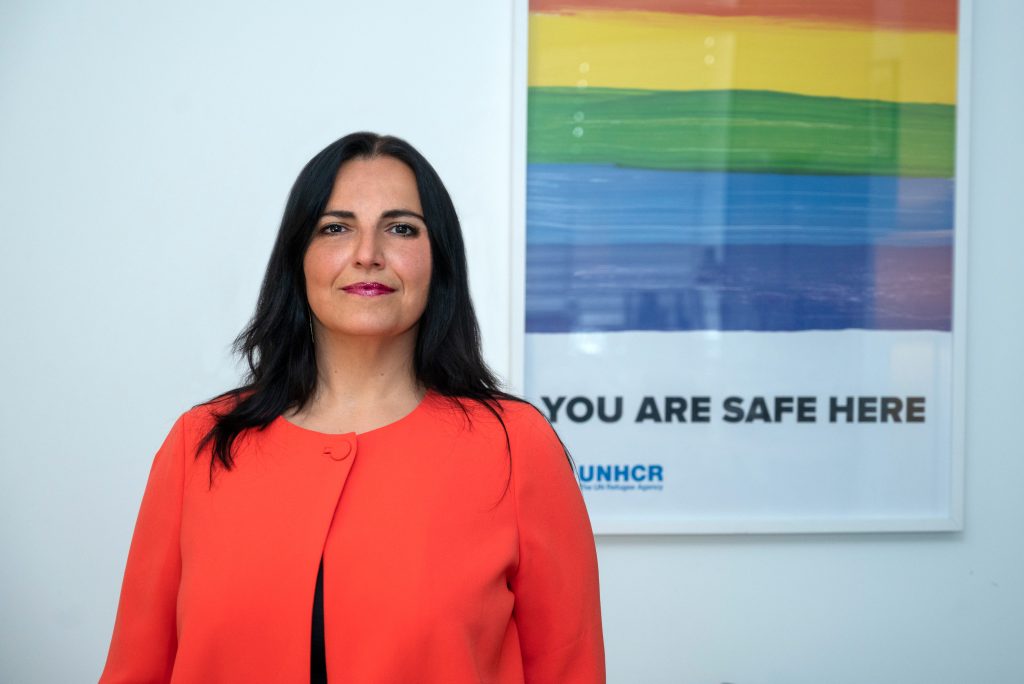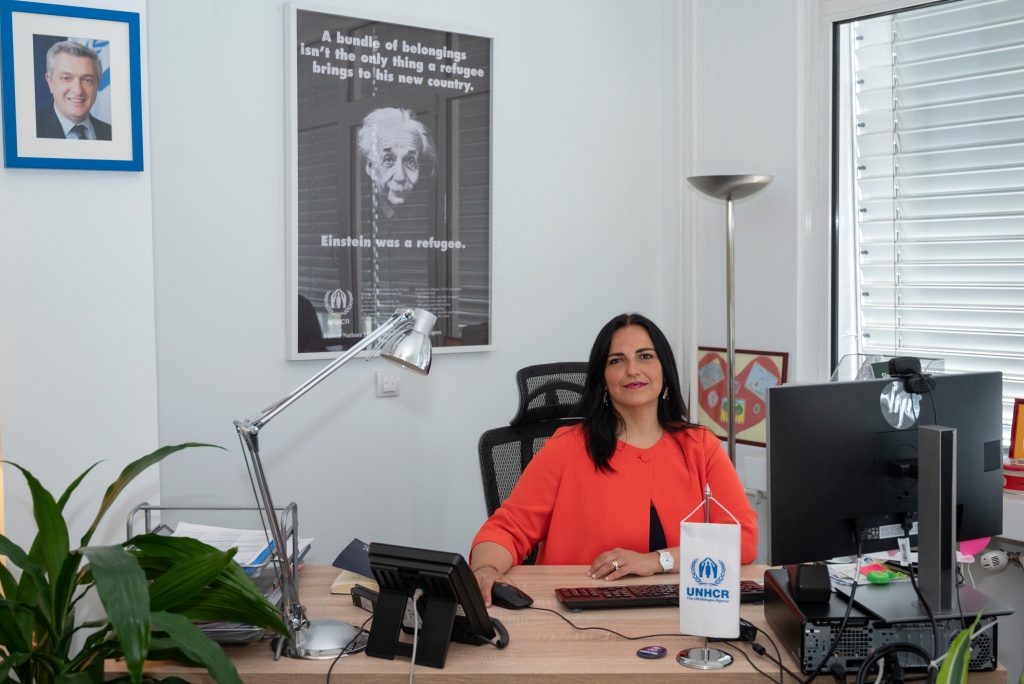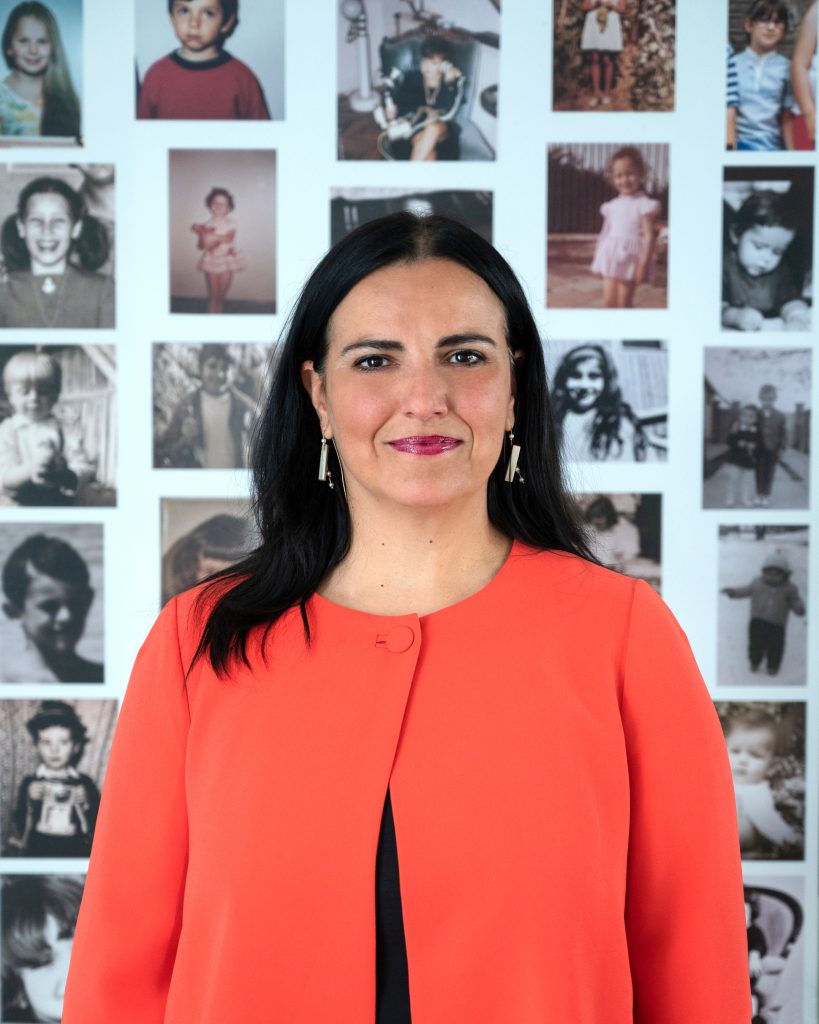Serbia knows what that means because many people here were refugees themselves
In April 2021, there are 5,500 refugees in Serbia. Serbia is still a transit country for refugees and migrants who come and go in an attempt to reach northern Europe. DC had the honor to speak to Francesca Bonelli, UNHCR Representative in Serbia who underlined that UNHCR must promote the true image of refugees because they are people like us.

DC: How many migrants and refugees does Serbia host at the moment and how was it before?
Since 2015, when refugees from Syria and other countries started moving along the Western Balkan route, over a million refugees have passed through Serbia, especially in 2015 and 2016. Of course, the global COVID-19 pandemic and local crisis in Serbia reduced the scope of their movement but did not halt it. Even in 2020, despite all the challenges brought on by the pandemic, refugees and migrants kept coming to Serbia. According to the data of the Commissariat for Refugees and Migration, more than 56,000 refugees and migrants were registered in 19 centres in Serbia.
Now there are 5,500 of them in Serbia. This shows that Serbia is still perceived as a transit country for refugees and migrants who come and go in an attempt to reach northern Europe. At the moment, Serbia is in the middle of a “mix” of movements of refugees and migrants. There is a difference between these two groups because migrants are people who have left their country in search of better living conditions and they can return home whenever they want and their lives are not in jeopardy. A refugee, according to the definition of the Geneva Convention from 1951, is a person who is at risk of persecution and cannot return to their country because of the life-threatening risks. Both migrants and refugees have the same human rights, but refugees also need international protection and countries and the international community are committed to adhere to the 1951 Convention and uphold refugee rights.
In Serbia, most migrants and refugees come from Afghanistan, Pakistan, Syria, Bangladesh and Iraq. Sixty-three percent of all arrivals in 2020 originate from refugee-producing countries (70% in 2019) and stand good chances to be recognized as persons in need of international protection if they were to submit their applications in the EU member states and indeed in Serbia following a substantive asylum procedure.

DC: Serbia was one of the first countries in Europe to start vaccinating refugees
Yes, including refugees and asylum seekers in the vaccination plan is a great sign of solidarity and protection of refugees in Serbia. This shows that Serbia is inclusive of the most vulnerable groups in society and committed to protecting each individual, as well as that discrimination in terms of protection from COVID-19 does not exist. We cannot feel safe if every individual is not safe.
UNHCR recognized Serbia’s humane approach to refugees. We are grateful to the Government of Serbia for the vaccination of refugees and the expressed sense of solidarity and empathy, care and commitment, ensuring that these people would be protected. UNHCR provided interpreters because many refugees do not speak Serbian and need to be informed in their native languages. They also needed masks, equipment and disinfectants, so together with the Commissariat for Refugees and Migrants, the Batut Institute and the Ministry of Health, we gave our support to the process of inclusion/vaccination. Before this, together with UNICEF, UNDP and the World Health Organization, we have been strongly advocating that refugees should be included in the National Vaccination Plan, and we are very pleased that they are part of the third phase of that plan.
DC: Opinion polls show a worrying level of xenophobia, especially among young people. What can Serbia do change this negative attitude towards foreigners?
We, at UNHCR, are deeply concerned about the growing xenophobia and hate speech against refugees and migrants. Unfortunately, this trend is not only noticeable in Serbia but also in many other countries and is often based on fake news, unrealistic numbers, news aimed at creating fear and using refugees and migrants as scapegoats to create an atmosphere of social insecurity and fear. Therefore, as a vulnerable group, refugees are exposed to attacks which is not only unfair but it also puts people, who are the most vulnerable, seek international protection and security and have fled wars, into risky situations while they are not a risk to society at all. It is especially important to fight against this trend firstly by providing true information and real numbers and figures.
Reality shows that the numbers are not alarming, and this is not an invasion. Europe has accepted a small number of refugees, considering the total number of refugees which is much lower in Europe than in Africa, Asia and South America. Countries like Lebanon, Jordan and Turkey are hosting the majority of the total number of 6,6 milion Syrian refugees, while in the whole Europe, in all the countries there are less than 2.5 million refugees,which is incomparable with other countries in the world. E.g. Venezuela crisis – 5.5 million displaced Venezuelans who escaped to neighbouring countries like Colombia, Peru and Brazil. So, there are countries that have taken on many more refugees than Europe, demonstrating very strong solidarity and social inclusion. It is therefore important that the quoted numbers are expressed transparently.
In 2021, there are 80 million displaced people in the world. This is the highest number ever and 50 % of them are children i.e. 40 million displaced people in the world are under age.
As mentioned, Serbia has cc:a 5,500 refugees and migrants who mainly transiting. Only around 200 people have been officially recognized as refugees in Serbia, and they came here to seek protection and start new life. They are now involved, actively participating and positively contributing to Serbian society. We must fight xenophobia and hate speech by communicating realistic numbers but also working with young people in schools and universities to develop empathy, eliminate the fear of refugees and show that refugees are people like us, but the only difference being that they had to flee their countries and seek security and protection.
We had several meetings where we talked directly with the students about who refugees really are and what is the current situation with refugees in the world. Most importantly, we gave the refugees a chance to tell their peers their life story. We had, for example, two boys from Afghanistan with one of them coming to Serbia in 2016 as a small child and is now in early adulthood. He came to Serbia because he lost his parents in Afghanistan, he was alone, desperate and in danger of being recruited by the Taliban, so he decided to flee.
After several years of travelling during which he was exposed to many risks, he came to Serbia, planning to just pass through the country and continue his journey, but then he said that he met good people in Serbia, found refuge, was given a roof over his head and felt protected. He could neither read nor write but he subsequently learned. Now, the school he attends in Serbia has discovered that he has a talent for art and he enrolled in an art school. He told the students a story about his destiny, how he left Afghanistan and was very affected by the war. But now he has found a new life in Serbia. These are examples that are very important to show to people that refugees are not dangerous that refugees are not dangerous, that they need our support and that they have human potential that can be very important for this society.

DC: Childcare is very important, considering that refugee and migrant children are a particularly vulnerable group. UNHCR is very engaged in this field?
That is a very important issue. In 2021, there are 80 million displaced people in the world. This is the highest number ever and 50 % of them are children i.e. 40 million displaced people in the world are under age. This is also noticed in Serbia because unaccompanied children make 13% of the people who come here. Children are the most vulnerable refugees, because of the war they have not been able to get an education, have no refuge and are exposed to multiple risks and abuse, even the prostitution. Unaccompanied children are the most vulnerable as they don’t have parents with them which means that they are exposed to the risk of prostitution. We have seen such examples with these children becoming victims of trafficking, being exploited and abused.
Refugees can contribute to our societies with their talent. The more we support them, the better they can give us back and contribute to creating a better world – just a reminder – Albert Einstein was a refugee
Child protection is one of the most important functions of UNHCR worldwide. Since 2015, UNHCR, has been committed to provide support and work closely with the Commissariat for Refugees and Migrants, the Ministry of Labour and Social Affairs, the Ministry of Interior and civil society. We have cooperated with 11 NGOs with some of them specialized in child protection. We work together as a team. Those children need shelter, a place where they feel safe, the opportunity to join the education system. Providing education for these children is a very good example for Serbia, just like vaccination, because here, refugee children have been attending school since 2016. This is a very successful and strong example of child protection because children attending schools are safer, have the opportunity to be educated and thus better integrate better into civil society. Some children learned Serbian quickly and became translators for their parents. We are grateful to the Ministry of Education and schools for providing education to refugee children in various parts of Serbia where they are situated.
By Vanja Kovačev